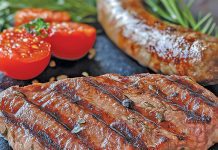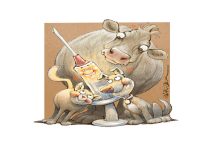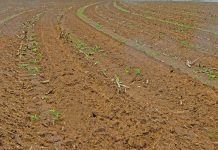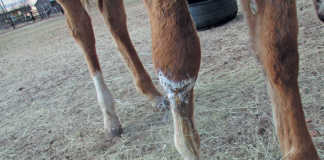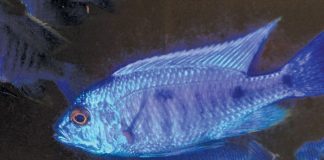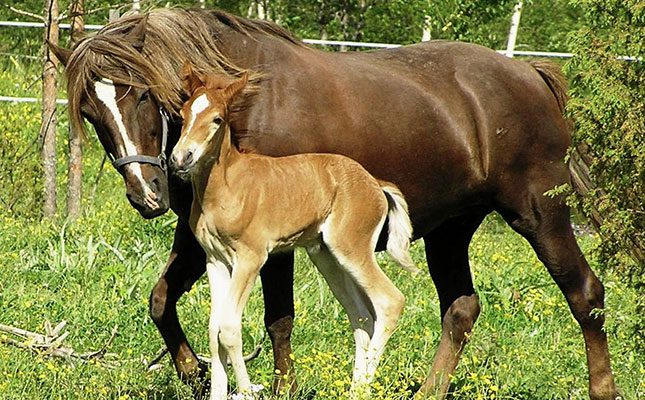
Photo: Wikimedia Commons
In South Africa, the type and amount of grazing available varies a great deal from season to season.
In the rainy season, the natural veld grass starts off short and juicy and green, with no roughage.
READ Feed and water requirements for horses
In autumn it is long and juicy with lots of seed, but in winter it becomes hard and fibrous.
Natural balance
Overgrazing and too much manure in a grazing camp will prevent regrowth of grass and create an abundance of weeds when the spring rains start.
In nature, zebras move long distances, following the type and nature of grazing as the seasons change.
In winter they graze on soft grass near rivers and streams; in spring they move to burnt areas where the spring grasses are emerging, then back to the hard, dry standing grass.
This balances the inputs into their digestive systems.
Broodmares on natural grazing in South Africa do not have this sort of mobility unless they are kept on huge farms with no fences.
Horses kept outside on natural land consume 8kg to 10kg (1% to 2,5% of their bodyweight) of grass a day. They need a good water source as they need to drink about 20ℓ a day. Usually the herd drinks at dawn and dusk.
This water intake is essential for maintaining the gut motility needed to digest veld grasses. A mare feeding a foal needs to drink about 50ℓ of water a day+.
Autumn is here, and winter is just around the corner. The mares in the herd are foaling so they need more water: owners need to check water levels.
Where do your horses get their drinking water? Is it from a stream, a dam, a river, or a water-point in the pasture?
Check that there is enough water at least twice a day; four broodmares with foals could drink 200ℓ a day. The bathtub in your house, when filled to the brim, only contains 180ℓ.
In hot weather, horses sweat, so even more drinking water is needed. A thirsty mare means slower growth in the foal as it does not get enough milk and its teeth and digestive system are not well enough developed to cope with dry grass and insufficient drinking water.
Dangers of algae
Water needs to be clean as polluted water results in sloppy droppings in both mares and foals. Heat and dust from dry manure combine with the autumn winds to pollute natural water sources.
READ Change feed, change behaviour!
South Africa is a sunny country and after rain, the day becomes hot and muggy: an ideal recipe for algal growth in a water source.
Even the lakes are turning green at this time of year. Blue-green algae is poisonous and can cause sudden death. Levels in water need to be monitored. If the water is green, empty and clean the trough.
The best way to clean a drinking trough is to use toilet a cleaner with lots of chlorine, and a toilet brush.
Half-empty the trough and pour in the chemical, use rubber gloves and scrub the walls. Swirl the soapy green water around and keep scrubbing.
Empty the trough. Add a little water and more toilet cleaner and keep scrubbing until all the walls are clean. Drain the trough and leave it to dry in the sun. Refill with chlorinated drinking water if available.
Dr Mac is an academic, a practising equine veterinarian and a stud owner.




